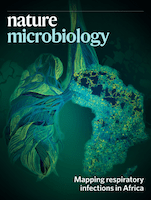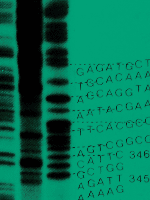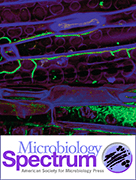
ANTONIE VAN LEEUWENHOEK INTERNATIONAL JOURNAL OF GENERAL AND MOLECULAR MICROBIOLOGY
Scope & Guideline
Illuminating the Path of Microbial Innovation
Introduction
Aims and Scopes
- Microbial Taxonomy and Systematics:
The journal emphasizes the classification and description of new microbial species, including bacteria, archaea, and fungi. It employs polyphasic approaches, integrating genomic, morphological, and biochemical data to establish taxonomic relationships. - Environmental Microbiology:
Research on microbial communities in diverse environments, such as marine, freshwater, soil, and extreme conditions, is a core focus. The journal highlights studies that explore the ecological roles of microbes and their interactions with other organisms. - Biotechnological Applications:
The journal also covers the application of microorganisms in biotechnology, including bioremediation, agriculture, and pharmaceuticals. Studies on microbial metabolites, enzymes, and their potential uses in various industries are frequently published. - Pathogen Characterization:
There is a significant interest in the characterization of microbial pathogens, including their virulence factors, antibiotic resistance, and implications for public health and agriculture. This includes both clinical isolates and environmental strains. - Functional Genomics and Metagenomics:
The journal supports research that utilizes genomic and metagenomic techniques to understand microbial functions, diversity, and adaptations, thereby contributing to a deeper understanding of microbial ecology.
Trending and Emerging
- Microbial Ecology and Community Dynamics:
There is an increasing emphasis on understanding microbial communities and their interactions within ecosystems. Research focusing on metagenomics and ecological assessments of microbial diversity is becoming more prevalent. - Novel Biotechnological Applications:
Emerging applications of microbes in biotechnology, such as bioplastics production, bioremediation, and sustainable agriculture, are gaining traction as the journal publishes more studies highlighting these innovative uses. - Extremophiles and Adaptations:
Research on extremophiles—microbes that thrive in extreme conditions—has become more prominent, reflecting a growing interest in their unique adaptations and potential applications in biotechnology and industry. - Antimicrobial Resistance and Pathogen Genomics:
The characterization of antimicrobial resistance in pathogens, particularly in clinical and environmental contexts, is trending. Studies utilizing genomic approaches to understand resistance mechanisms are increasingly featured. - Synthetic Biology and Engineering of Microbes:
There is a rising trend towards synthetic biology, where researchers are engineering microbes for specific functions, including metabolic engineering for biofuel production and bioremediation.
Declining or Waning
- Traditional Microbial Physiology:
There has been a noticeable decrease in articles focusing solely on classical microbial physiology without a genomic or ecological context, indicating a shift towards more integrative approaches in microbiological research. - Plant-Microbe Interactions:
Although still published, studies specifically focusing on plant-microbe interactions have become less frequent, possibly as the focus shifts to broader ecological and genomic studies. - Antibiotic Discovery from Soil Microbes:
Research centered solely on the discovery of novel antibiotics from soil bacteria has diminished, reflecting a broader trend towards understanding microbial roles in ecosystems rather than just their pharmaceutical potential. - Single-Species Studies:
The journal's recent publications indicate a waning interest in studies that focus exclusively on the properties of single microbial species without considering their ecological interactions or community dynamics.
Similar Journals

ARCHIVES OF MICROBIOLOGY
Advancing the Frontiers of Microbial ScienceThe Archives of Microbiology, published by Springer, is a reputable journal in the field of microbiology, serving as a vital platform for the dissemination of groundbreaking research and critical reviews since its inception in 1974. With an ISSN of 0302-8933 and an E-ISSN of 1432-072X, this journal operates out of Germany and maintains a global reach, promoting high-quality scholarship across multiple disciplines, including biochemistry, genetics, and molecular biology, as evidenced by its Q2 ranking in Medicine (miscellaneous) and consistent Q3 placements in other categories in 2023. Although the journal does not offer open access options, its rigorous peer-review process ensures that published articles are of the highest standard, making it an essential resource for researchers, professionals, and students keen on advancing their understanding of microbial sciences. As the journal converges toward 2024, it remains committed to fostering innovative microbiological research and facilitating interdisciplinary dialogue within the scientific community.

MICROBIOLOGY
Pioneering Research in Environmental and Clinical MicrobiologyMICROBIOLOGY (ISSN: 0026-2617, E-ISSN: 1608-3237), published by MAIK NAUKA/INTERPERIODICA/SPRINGER, is a pivotal journal in the field of microbiological research, operating from the vibrant hub of New York, United States. With a focus on the intricate relationships and functionalities of microorganisms, MICROBIOLOGY serves as an essential resource for professionals and researchers dedicated to advancing the knowledge of applied microbiology and biotechnology. As of 2023, it holds a competitive Q3 and Q4 category ranking in Applied Microbiology and Biotechnology and Microbiology, respectively, reflecting its commitment to high-quality and impactful research. Although currently not open access, the journal extends comprehensive insights into critical topics that span environmental microbiology, clinical applications, and biotechnology advancements, making it a vital platform for disseminating innovative findings in this ever-evolving discipline. Researchers and students alike will find MICROBIOLOGY to be an invaluable addition to their academic and professional repertoire.

APPLIED BIOCHEMISTRY AND MICROBIOLOGY
Unveiling New Horizons in Biochemistry and Microbiology.Applied Biochemistry and Microbiology is an esteemed journal published by Pleiades Publishing Inc, focusing on the intricate intersections of biochemistry and microbiology. Established in 1970, with a commitment to advancing scientific knowledge, this journal serves as a vital platform for disseminating innovative research findings in applied microbiology, biotechnology, and biochemistry. With its ISSN 0003-6838 and E-ISSN 1608-3024, the journal operates from its base in New York, USA. As a recognized publication in the field, Applied Biochemistry and Microbiology holds a Category Quartile ranking of Q3 in Applied Microbiology and Biotechnology and Q4 in Biochemistry, reflecting its significant contributions and relevance. Although currently not open access, the journal is indexed in Scopus, with respectable rankings that highlight its impact in the community, making it a pivotal resource for researchers and professionals dedicated to the realms of biochemistry and microbiology.

International Journal of Microbiology
Advancing Knowledge in Microbiology for a Better TomorrowWelcome to the International Journal of Microbiology, a premier platform dedicated to the dissemination of cutting-edge research in the field of microbiology. Published by HINDAWI LTD, this open-access journal has been making significant strides since its inception in 2009, ensuring that high-quality research is accessible to all. Situated in Egypt, the journal caters to an international audience, fostering collaboration across borders. With a commendable impact factor and recognized in the Q2 category for both general and medical microbiology, it ranks 48th out of 182 and 40th out of 140, respectively, according to Scopus statistics, placing it among the top-tier journals in its field. The International Journal of Microbiology publishes articles that explore various aspects of microbiology, from fundamental studies to applied research, thus contributing significantly to advancements in medical, agricultural, and environmental microbiology. This journal is an essential resource for researchers, professionals, and students eager to stay at the forefront of microbiological studies and their applications.

Nature Microbiology
Empowering Researchers to Shape the Future of MicrobiologyNature Microbiology is a premier journal published by NATURE PORTFOLIO that has firmly established itself within the realms of microbiological research since its inception in 2016. Based in the United Kingdom, this prestigious journal specializes in the intricacies of applied microbiology, cell biology, genetics, immunology, and medical microbiology, making it a cornerstone for academics and professionals alike. With an impressive Scopus ranking placing it in the top tier across various relevant categories—such as rank #3 in Genetics and #2 in Applied Microbiology—it underscores the journal’s commitment to high-quality, impactful research. Although it operates under a subscription model, Nature Microbiology's broad Open Access policy facilitates greater dissemination and visibility for its authors. The journal's objectives are centered around publishing cutting-edge advancements that enhance our understanding of microbial life, its interactions, and applications in health and disease. As a Q1 journal across multiple disciplines, it holds immense significance for researchers, professionals, and students enthusiastic about the latest innovations and breakthroughs in microbiology.

Malaysian Journal of Microbiology
Fostering Collaboration in Microbiology for Global SolutionsMalaysian Journal of Microbiology is a prestigious open-access journal dedicated to advancing the field of microbiology, published by the Malaysian Society for Microbiology. Since its inception in 2005, this journal has become an essential platform for researchers and practitioners, facilitating the dissemination of innovative studies in applied microbiology, biotechnology, and infectious diseases. Based in Penang, Malaysia, this journal not only focuses on local microbiological research but also positions itself within the broader global scientific community. Although currently placed in the Q4 category in several relevant fields—including Applied Microbiology and Biotechnology, Infectious Diseases, and Medical Microbiology according to the 2023 Scopus rankings—it plays a crucial role in encouraging novel research and fostering collaboration among scientists. The journal encourages submissions that contribute to the understanding of microbial processes, disease mechanisms, and novel biotechnological applications, thereby supporting the continuous growth of knowledge in microbiology. With open access since its launch, the Malaysian Journal of Microbiology ensures that all published works are freely available to the public, enhancing their visibility and impact within the scientific community.

mSphere
Elevating scientific dialogue in the microbial realm.mSphere is a leading open-access journal published by the American Society for Microbiology, dedicated to the dynamic fields of Microbiology and Molecular Biology. Since its inception in 2016, mSphere has rapidly established itself as a reputable source of scholarly research, achieving notable impact factors and excellence within the academic community. The journal ranks in the top quartile (Q1) amongst its peers in Microbiology, and Q2 in the field of Molecular Biology, demonstrating its significance and relevance through Scopus rankings—specifically, it holds the #42 spot out of 182 in the Microbiology category and #108 out of 410 in Molecular Biology. With an editorial commitment to advancing the understanding of microbial and molecular sciences, mSphere provides an accessible platform for researchers, professionals, and students alike to disseminate groundbreaking findings. The journal promotes rigorous peer-review and invites innovative contributions aimed at enhancing microbial research mobility and molecular exploration. Accessible openly since 2016, mSphere continues to thrive as an influential publication driving scientific dialogue and discovery in the microbiological sciences.

JOURNAL OF BASIC MICROBIOLOGY
Advancing the Frontiers of Microbial ScienceJOURNAL OF BASIC MICROBIOLOGY is a premier publication in the field of microbiology, published by WILEY since 1985. With a significant presence in Germany, this journal encompasses a wide spectrum of research topics, focusing on applied microbiology and biotechnology as well as diverse areas within medicine. Holding a commendable Q2 ranking in both its categories for 2023, it plays a crucial role in disseminating innovative findings and methodologies to the community. Researchers will find it to be an essential platform for sharing high-quality work, where it currently stands at rank #47 in the applied microbiology and biotechnology category, representing the 63rd percentile among international journals. The JOURNAL OF BASIC MICROBIOLOGY caters to a growing audience of professionals and students, offering insights essential for advancement in microbiological research and its applications. While it does not currently offer an Open Access option, it remains an influential outlet for academic excellence, continuously contributing to the development of the field through its rigorous peer-reviewed articles.

Microbial Genomics
Fostering Collaboration in Microbial InnovationMicrobial Genomics, an esteemed journal published by the Microbiology Society, is a leading platform dedicated to the rapidly evolving field of microbial genomics. Since its transition to Open Access in 2016, this journal has consistently aimed to promote unprecedented transparency and accessibility in scientific research. Based in the United Kingdom, Microbial Genomics serves a diverse international audience, providing an invaluable resource for researchers, professionals, and students interested in genomics, microbiology, and related fields. With impressive quartile rankings in 2023, including Q1 status in Epidemiology, Genetics, and Microbiology, alongside strong performance in other categories, the journal is positioned at the forefront of academic discourse and innovation. This journal's commitment to excellence is not only reflected in its rigorous peer-review process but also in its dedication to showcasing groundbreaking research that informs current practices and shapes future trends in microbial science. As researchers explore the intricacies of microbial genomes, Microbial Genomics remains an essential resource fostering knowledge and collaboration in the scientific community.

Microbiology Spectrum
Fostering collaboration through open access innovation.Microbiology Spectrum is a prominent peer-reviewed journal published by the American Society for Microbiology, dedicated to advancing the field of microbiology through the dissemination of high-quality research. Since its inception in 2013 and continuing until 2024, the journal has established a strong presence in key domains such as microbiology, immunology, cell biology, and ecology, achieving impressive quartile rankings including Q1 in Infectious Diseases and Q1 in Immunology and Microbiology as of 2023. With an emphasis on open access to its scholarly content, Microbiology Spectrum aims to foster collaboration and knowledge sharing among researchers, professionals, and students alike. The journal's scope encompasses a diverse range of topics pertinent to the field, making it an essential resource for anyone involved in microbiological research and its applications. Researchers looking to publish their findings in a respected journal will find Microbiology Spectrum's robust impact factor and Scopus rankings serve as testament to its significance and influence within the academic community.